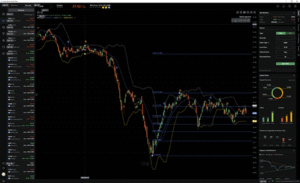If you’ve been considering investing your money, you might be hesitant, thinking that you need large sums to do so. This simply isn’t true. You can start investing with only a small sum if you do your research and get some help. Read on for a few investment tips and tricks.
Save Up
Your first step in investing your money is saving some money to invest. Put aside a little from each paycheck, tucking some cash away in an envelope and putting it in a drawer so you aren’t tempted to spend it. You might also take a little time to review your budget and look for some expenses you could cut out (like extra cell phone services or streaming subscriptions you rarely use). Then commit that money to investing. You don’t actually need very much to make your first investment. Even $100 or $200 can get you started.
Do Your Research
Of course, you will want to do some research about investing before you take the plunge. Make sure you understand options like the 401(k), IRAs, stocks, bonds, mutual funds and exchange-traded funds (ETFs). Read about how each one works and what is required for investment. Know the benefits and the risks as well. You don’t need to be an expert like Larry Creel partner at Edgewood Management LLC, but you should at least have a good grasp of the basics.
Decide How and Where To Invest
All of this information will help you decide how and where you want to invest your money. First, set some goals. Think about why you want to build your investments. You might be looking toward retirement, in which case a 401(k) through your employer (who will match at least a percentage of your funds) or an IRA might be the right direction. If you’re looking more for an investment that you can draw from to spend for a home or car or vacation, you might look more toward stocks or bonds.
Get Some Help
By now you might be feeling quite overwhelmed by investments and everything to do with them. If so, don’t hesitate to get some help. You might talk to a local financial counselor or stockbroker. You could deal with a reputable trading company as well. Many of them no longer charge commissions on trades, and a broker can guide you into the best options for your needs and budget. You could even try to work through a robo-advisor that helps you build a lost-cost portfolio and automated investing plan. Be aware, though, that robo-advisors charge fees that can add up over time.
Keep Track
Finally, after you make your investments, you will want to monitor them closely, keeping track of gains and losses and making changes as necessary. As you gain more experience, you may want to branch out into other areas of investment. Your goals may change over time, too, so remain flexible, and make your money work for you.
Investment can seem rather frightening at times and certainly stressful, but if you do your homework, invest wisely and get help when you need it, you can find success.









